Wonder about the 3rd hour in the Bible? Discover its profound significance and how it shapes our understanding of history and spirituality.

What Is the 3rd Hour in the Bible
Time waits for no one, and in the biblical context, understanding the 3rd hour can offer you unique insights into ancient practices and significant events.
You might wonder why this specific time marker holds importance or what events are associated with it.
The 3rd hour, rooted in historical timekeeping, carries symbolism and interpretations that have influenced both past cultures and modern reflections.
If you're curious about how these ancient timekeeping practices impact our understanding of biblical events and their significance, there's much to uncover in the layers of history and tradition that surround the 3rd hour.
Key Takeaways
- The 3rd hour in the Bible, traditionally understood as 9 AM, marks significant spiritual and communal events.
- It symbolizes moments of divine intervention, such as Christ's crucifixion and the Holy Spirit's descent.
- This hour held deep religious significance, aligning with cultural rituals and morning worship activities.
- Understanding the 3rd hour provides insight into ancient practices and their impact on modern spirituality.
Historical Context of Timekeeping
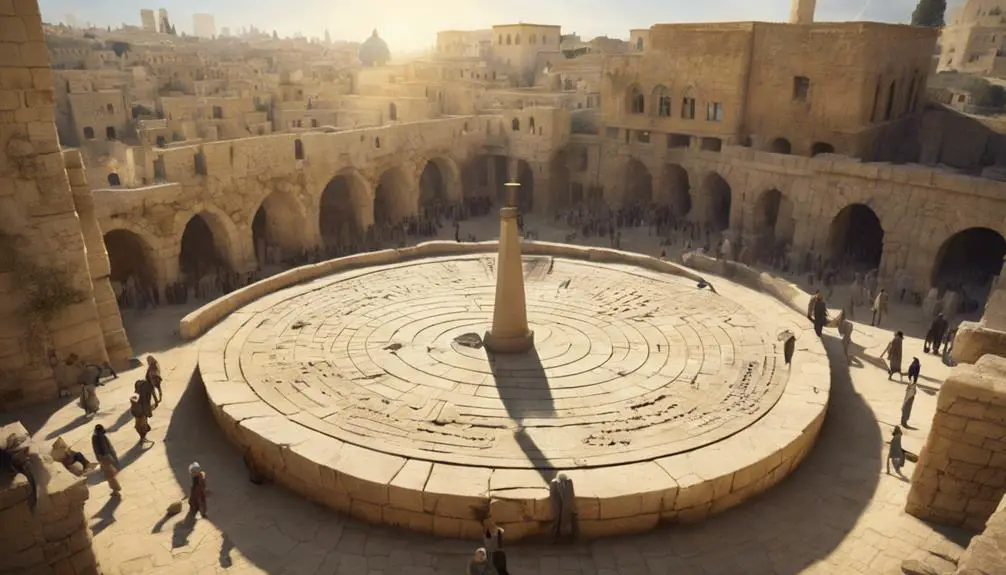
To grasp the significance of the 3rd hour in biblical times, it's essential to understand the historical context of timekeeping, which reveals how ancient societies structured their days and nights. You'll find that the accuracy of sundials and the use of lunar calendars played pivotal roles in this era's temporal organization. Sundials, relying on the sun's shadow, were the primary means to measure time during the day. Their accuracy, however, was contingent upon the sun's position, making them less reliable on cloudy days or at certain latitudes where the sun's angle varied significantly with the seasons.
Lunar calendars, on the other hand, governed the night and structured the months and years. These calendars were based on the phases of the moon, a method that, while consistent, required adjustment to align with the solar year. The interplay between sundial accuracy and the lunar calendar's cyclical nature provided a framework for timekeeping that, while not precise by today's standards, functioned effectively for ancient societies.
This dual system of timekeeping, integrating both solar and lunar measurements, underscored the importance of celestial bodies in daily life and spiritual practices. It set a foundation for the temporal markers mentioned in biblical texts, including the 3rd hour, embedding these moments with cultural and religious significance.
Significance of the 3rd Hour
Having established how ancient societies tracked time, we'll now explore why the 3rd hour holds particular significance in biblical narratives. This time of day, occurring around 9 a.m. by modern reckoning, was deeply interwoven with the daily routines and cultural rituals of those times. It wasn't merely a marker of time but signified a transition in the day's activities. After the initial hours of work or prayer at dawn, the 3rd hour often marked a pause, a moment for reflection or a shift towards the next phase of the day's labor or worship.
Analyzing the significance of this hour sheds light on the rhythm of life in ancient times. It was a period deeply rooted in the social and religious fabric of the community. Cultural rituals, including prayers and offerings, frequently aligned with this hour, underscoring its importance not just temporally but spiritually. Understanding this hour's role provides a richer context for interpreting biblical texts, as it was a time laden with meaning, woven into the very structure of daily life and religious observance.
Biblical Events at the 3rd Hour
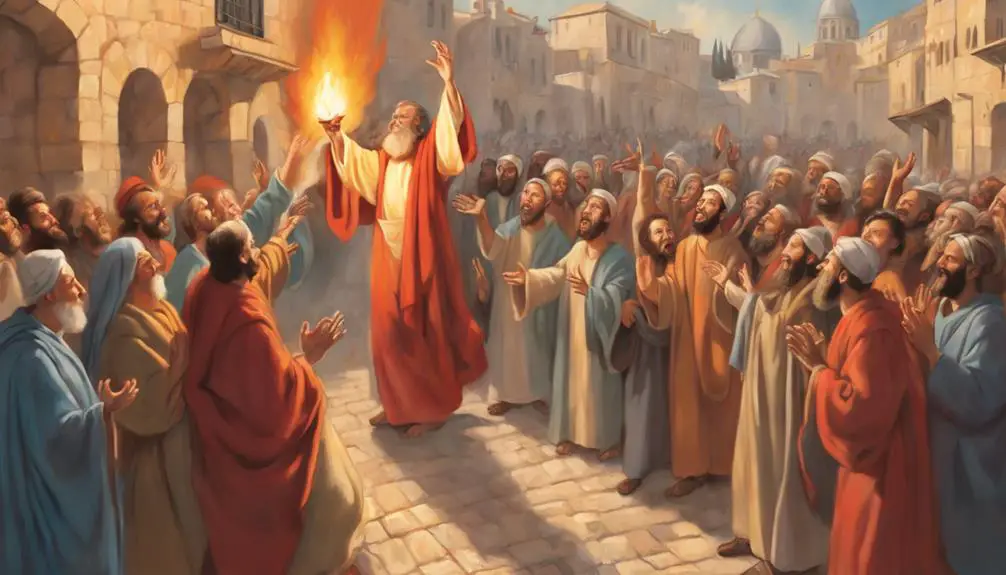
Why does the 3rd hour emerge as a pivotal moment in several biblical narratives, marking events of profound spiritual significance? This specific time, traditionally understood as 9 AM based on the ancient Hebrew system of daylight division, intersects with key morning rituals and practices. The 3rd hour holds a unique position in the daily cycle, bridging the initial acts of worship and the day's full commencement of activities, thereby embedding itself deeply within the fabric of spiritual and communal life.
In the Scriptures, the 3rd hour is often a backdrop for divine actions and revelations. This period, being part of the first phase of daylight, is symbolically rich, embodying themes of illumination and beginnings. It's when the community is engaged in morning rituals, a time set apart for prayer and offerings, making it ripe for moments of spiritual encounter and divine intervention. The positioning of significant events at this hour underlines its importance, highlighting a period of heightened spiritual receptivity and activity.
Thus, the 3rd hour serves not merely as a temporal marker but as a confluence of divine and human engagement, underscored by the practices and rhythms of ancient worship.
Symbolism and Interpretations
Delving into the symbolism of the 3rd hour, we uncover layers of meaning that resonate deeply with biblical narratives and their interpretations. The 3rd hour, mentioned in various contexts within the Bible, isn't just a marker of time but imbues events with cultural metaphors and allegorical meanings, enriching the text's spiritual and historical dimensions.
Aspect |
Symbolism |
Interpretation |
|---|---|---|
Time of Day |
Transition period |
Represents moments of change or divine intervention |
Cultural Metaphors |
Light overcoming darkness |
Symbolizes enlightenment, knowledge, and purity |
Allegorical Meanings |
Beginning of Christ's crucifixion |
Emphasizes sacrifice, redemption, and the fulfillment of prophecy |
Spiritual Significance |
Holy Spirit's descent |
Marks empowerment, renewal, and the birth of the church |
These symbols and interpretations offer a multifaceted understanding of biblical events, where the 3rd hour acts as a pivot point for transformation and revelation. Through these allegorical meanings, the Bible communicates profound truths about human nature, divine intervention, and the pathway to spiritual enlightenment. Thus, the 3rd hour extends beyond a simple time designation, embodying deep theological and existential themes that continue to inspire and provoke thought among scholars and believers alike.
Modern Reflections on Ancient Practices
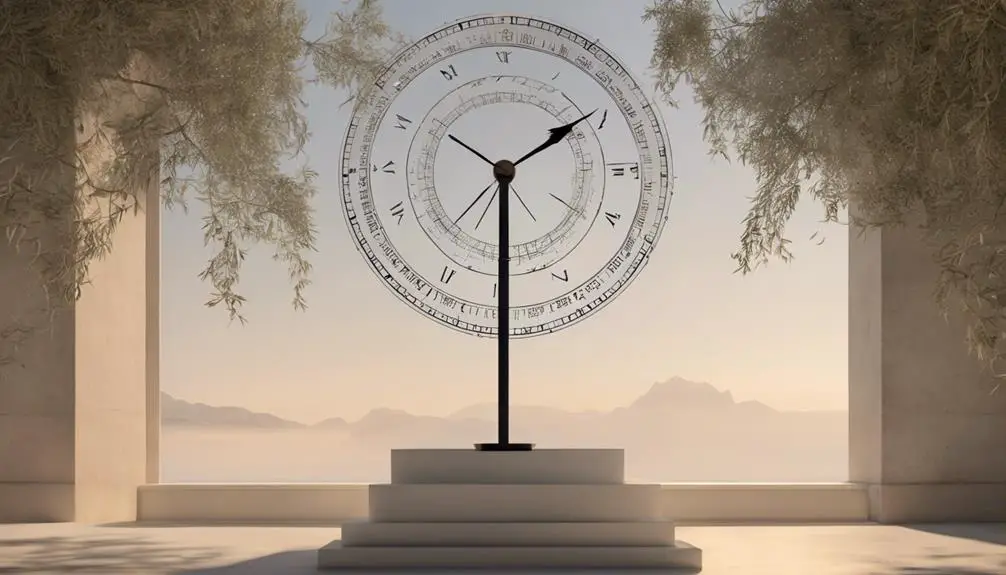
In today's rapidly evolving society, it's crucial to examine how ancient biblical practices, such as those represented by the 3rd hour, continue to influence modern spiritual and cultural landscapes. The 3rd hour, deeply rooted in Jewish tradition and early Christian worship, serves as a pivotal example of how ancient rituals shape contemporary beliefs and practices. It's a moment in time that symbolized divine intervention and the outpouring of the Holy Spirit, marking a significant transformation in the lives of early Christians.
As you delve deeper, you'll notice that the resonance of the 3rd hour in modern times is more than a mere replication of past rituals. It's about the cultural evolution that these ancient practices have undergone, adapting to the needs and contexts of today's society. For instance, the principle of dedicating specific times for prayer and reflection, akin to the 3rd hour, is still prevalent. However, the interpretation and observance might vary, reflecting a broader, more inclusive understanding of spirituality.
This adaptation underscores the dynamic nature of cultural evolution, where ancient rituals aren't just preserved but are reinterpreted to maintain relevance in a changing world. It highlights the intricate ways in which traditions from millennia ago continue to mold and enrich modern spiritual and cultural identities.
Frequently Asked Questions
How Do Modern Religious Practices Incorporate the Concept of the 3rd Hour From the Bible?
In modern religious practices, the concept of the 3rd hour from the Bible deeply influences daily routines and hourly devotion.
You'll find that many believers integrate specific prayers or meditations at this time, reflecting a tradition rooted in biblical events.
This practice not only enriches personal faith but also aligns daily activities with spiritual milestones.
It's a thoughtful incorporation of ancient wisdom into contemporary life, emphasizing a structured approach to spirituality.
What Are the Psychological Effects of Recognizing Specific Hours for Prayer or Reflection, as Exemplified by the 3rd Hour in Biblical Texts?
Recognizing specific hours for prayer, like the dawn's first light marking a sacred moment, can significantly alter your time perception and mental health.
This structured reflection aligns your day, providing a psychological anchor. It fosters a rhythm of mindfulness, enhancing mental clarity and emotional stability.
This ritualistic observance carves out islands of peace in your daily sea of chaos, offering a refuge for your mind amidst life's relentless pace.
How Have Different Translations of the Bible Impacted the Understanding or Significance of the 3rd Hour?
Different Bible translations have nuanced the understanding of the 3rd hour, impacting its significance. Translation accuracy varies, affecting how you grasp its importance.
Cultural interpretations further diversify this understanding. As translations evolve, they reflect contemporary language and cultural norms, altering your perception of the 3rd hour's role in biblical events.
This evolution underscores the dynamic relationship between scripture, language, and culture, influencing how you interpret and value ancient practices.
Are There Any Specific Liturgical Music or Hymns That Reference the 3rd Hour, and How Are They Used in Contemporary Worship?
You're diving into how hymns tie to specific times, yet you've probably never set an alarm for the 3rd Hour to catch its tunes.
Delving into its symbolism, you'll find hymns rich in historical context. Their musical notation isn't just notes; it's a narrative of faith echoing through ages.
In contemporary worship, these pieces transcend mere melodies, serving as a bridge connecting modern believers with ancient traditions, analytically speaking.
Can the Concept of the 3rd Hour Be Found or Paralleled in Other Religious Texts Outside of Christianity, and How Is It Interpreted in Those Contexts?
You'll find that the concept of the third hour isn't unique to Christianity. In other religious texts, cultural parallels and historical contexts offer a broader understanding. These traditions interpret the third hour with their own significant events or moments of divine interaction, reflecting a universal theme of sacred times.
Analyzing these parallels, you uncover a fascinating cross-cultural dialogue that enriches our understanding of how sacred time is observed and honored across diverse beliefs.
Conclusion
In wrapping up, you've gallantly navigated through the sands of time, unraveling the mysteries of the 3rd hour with the precision of a biblical archaeologist on a caffeine buzz.
We've dissected the symbolism, chewed on the historical context, and even dabbed a bit into modern reflections, all while riding the scholarly camel of analysis.
It's clear – the 3rd hour isn't just a time stamp; it's a treasure chest of spiritual insights, waiting for those brave enough to crack its dawn.
So, as you step back into the 21st century, remember, ancient timekeeping has more to offer than just a quirky way to schedule your prayers or meetings. It's a portal to understanding the profound, often humorous, ways our ancestors connected with the divine.

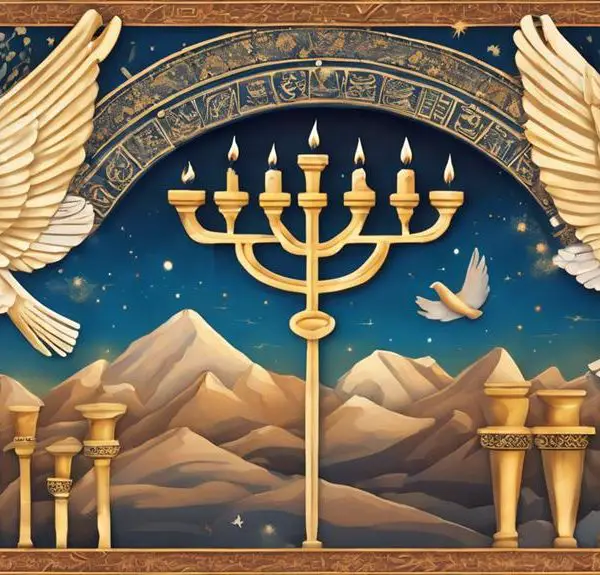
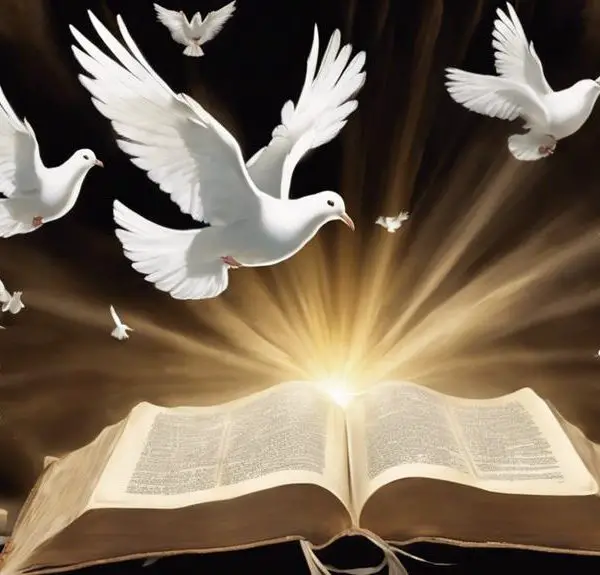
Sign up